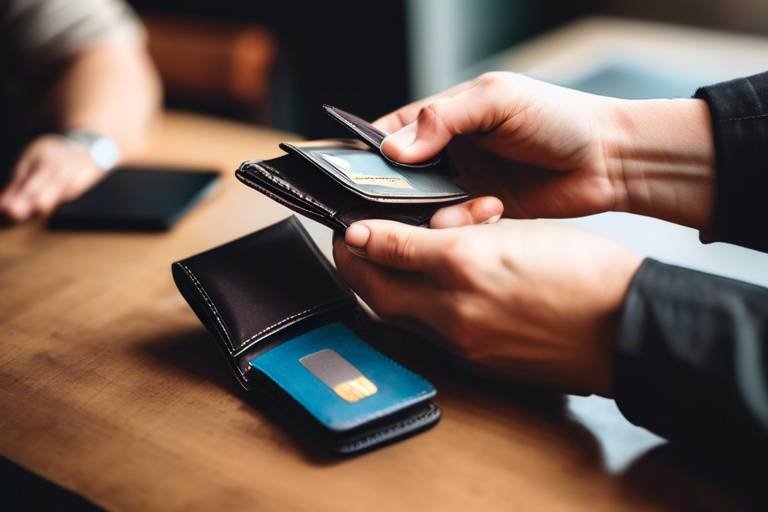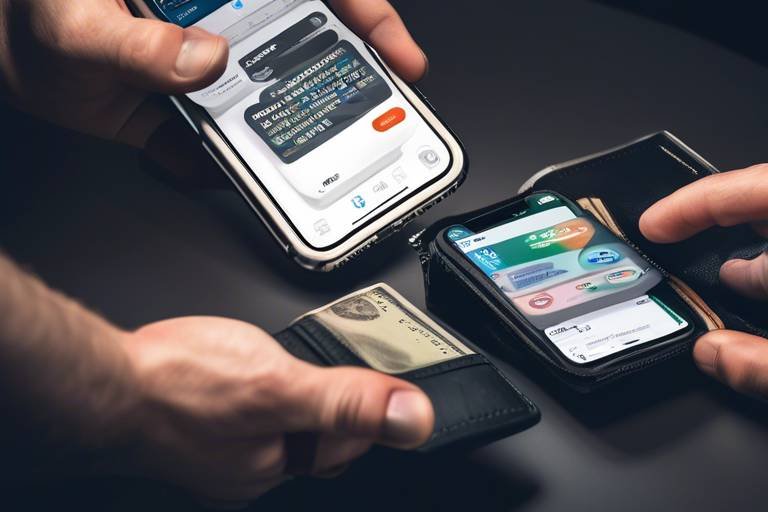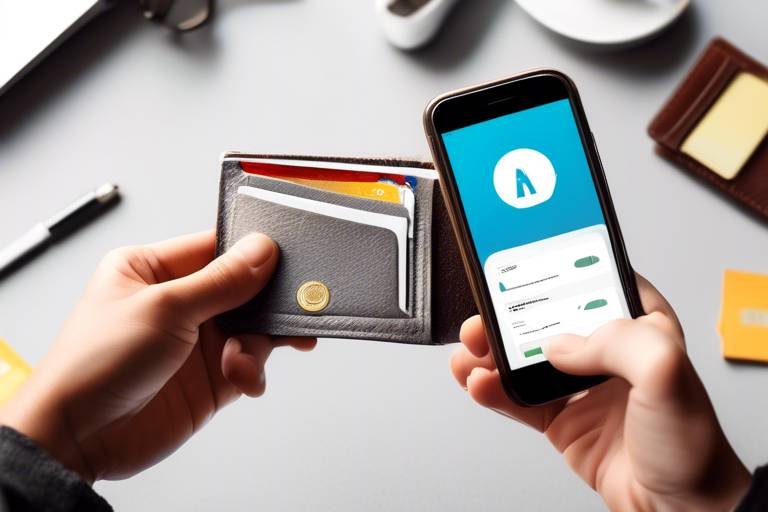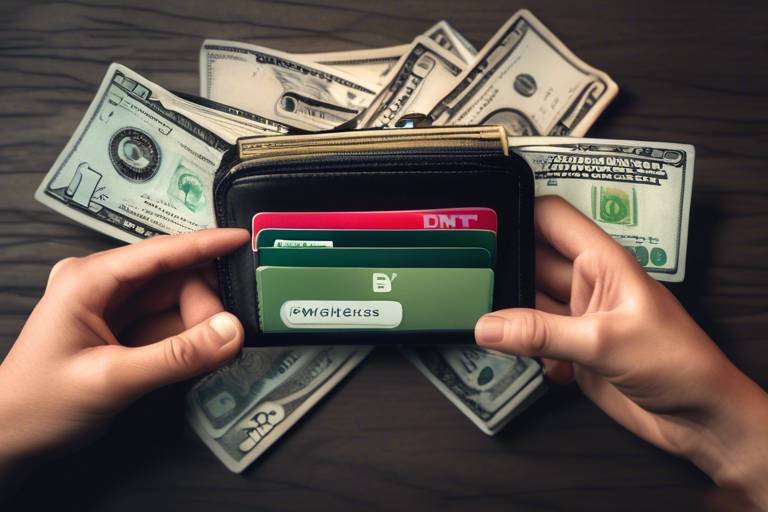Understanding the Security Protocols of Leading Wallets
In the ever-evolving world of digital currencies, the importance of security cannot be overstated. Cryptocurrency wallets serve as the gateway to your digital assets, and understanding their security protocols is crucial for protecting your investments. Imagine your wallet as a high-tech vault; just as you wouldn’t leave your valuables unprotected, you shouldn’t overlook the security features of your cryptocurrency wallet. This article delves into the various security measures employed by popular wallets, emphasizing their significance in safeguarding your hard-earned cryptocurrencies from theft and fraud.
Cryptocurrency wallets are digital tools that allow users to store, manage, and transact cryptocurrencies. They come in various forms, each with its own unique features and security protocols. Understanding how these wallets function is essential for grasping the importance of their security measures. Think of a cryptocurrency wallet as a digital bank account; it holds your funds, tracks your transactions, and provides access to your assets. The difference lies in the decentralized nature of cryptocurrencies, which means that the responsibility for security falls squarely on the user’s shoulders.
When it comes to cryptocurrency wallets, there are several types to choose from, each offering different levels of security and convenience. The main categories include hardware wallets, software wallets, and paper wallets. Each type has distinct security features and vulnerabilities that users should consider when making a choice. For instance, hardware wallets are like safes that keep your keys offline, while software wallets can be seen as digital lockers that are accessible anytime, anywhere.
Hardware wallets are physical devices designed to securely store private keys offline. Their robust security measures make them a popular choice for long-term cryptocurrency storage. By keeping your keys offline, hardware wallets significantly reduce the risk of hacking, making them a fortress against online threats. However, just like any fortress, they require a bit of investment and technical know-how to set up properly.
One of the standout benefits of hardware wallets is their enhanced security against online threats, making them ideal for users holding significant amounts of cryptocurrency. They often come with backup options for recovery, ensuring that you won’t lose your assets due to unforeseen circumstances. In fact, many hardware wallets are equipped with features like:
- Secure chip technology: Protects against physical attacks.
- Seed phrase backup: Allows for recovery in case of loss.
- User-friendly interfaces: Simplifies the transaction process.
Despite their security, hardware wallets can be costly and may require technical knowledge to set up and use effectively, which could deter some users. Think of it this way: while you can have the best security system for your home, if you don’t know how to operate it, it’s not going to do you much good. Therefore, potential users must weigh the benefits against the learning curve and cost involved.
Software wallets are applications that store private keys either on devices or in the cloud. They provide convenience and are often user-friendly, making them a popular choice for everyday transactions. However, this convenience comes at a price, as software wallets can present various security risks that users must navigate. For instance, they are more susceptible to malware attacks and phishing scams compared to their hardware counterparts. Therefore, if you choose a software wallet, it’s crucial to stay vigilant and implement additional security measures.
When selecting a cryptocurrency wallet, it's essential to consider security features such as two-factor authentication, encryption, and backup options to ensure the safety of your assets. These features act as the first line of defense against unauthorized access and potential theft. Just like you wouldn’t leave your house without locking the doors, you should never compromise on these security measures.
Two-factor authentication (2FA) adds an extra layer of security by requiring a second form of verification, significantly reducing the risk of unauthorized access to wallets. It’s akin to having a second lock on your door—just because someone has the key doesn’t mean they can get in without the additional code. This simple yet effective measure can make a world of difference in protecting your digital assets.
Encryption techniques protect sensitive data within wallets, making it difficult for cybercriminals to access private keys even if they manage to breach the wallet's defenses. Think of encryption as a secret code that only you and your wallet understand. This means that even if someone intercepts your data, they won’t be able to decipher it without the key. Therefore, choosing a wallet that employs strong encryption methods is paramount.
1. What is the safest type of cryptocurrency wallet?
The safest type is generally considered to be a hardware wallet, as it stores private keys offline and is less susceptible to hacking.
2. Can I use multiple wallets for my cryptocurrencies?
Yes, many users opt to use multiple wallets to diversify security and manage different types of cryptocurrencies effectively.
3. How often should I back up my wallet?
It’s advisable to back up your wallet regularly, especially after making significant transactions or changes to your wallet settings.

What are Cryptocurrency Wallets?
Cryptocurrency wallets are digital tools that enable users to store, manage, and conduct transactions with cryptocurrencies. Think of them as your digital bank accounts, but instead of dollars, they hold cryptocurrencies like Bitcoin, Ethereum, and many others. Understanding how these wallets function is crucial for grasping their security protocols and the importance of protecting your digital assets.
At their core, cryptocurrency wallets do not actually store your cryptocurrencies; rather, they store the private keys that give you access to your crypto holdings on the blockchain. This is akin to having a key to a safe deposit box in a bank. Without that key, you cannot access your assets. Therefore, securing your wallet is paramount, as losing access to your private keys means losing your cryptocurrencies forever.
There are various types of cryptocurrency wallets, each with unique features and levels of security. Some wallets are designed to be user-friendly and convenient, while others prioritize security above all else. When choosing a wallet, it’s essential to consider factors such as your level of experience, how frequently you plan to use your cryptocurrencies, and the amount of digital assets you intend to store.
To give you a clearer picture, here’s a brief comparison of the main types of wallets:
| Type of Wallet | Security Level | Accessibility | Best For |
|---|---|---|---|
| Hardware Wallets | High | Low | Long-term storage |
| Software Wallets | Medium | High | Frequent transactions |
| Paper Wallets | High | Very Low | Cold storage |
In summary, understanding what cryptocurrency wallets are and how they function is the first step in safeguarding your digital assets. As you dive deeper into the world of cryptocurrencies, remember that the choice of wallet can significantly impact your overall security and accessibility. So, whether you're a seasoned investor or a curious newcomer, take the time to explore your options and choose wisely!

Types of Wallets
When it comes to managing your cryptocurrency, understanding the different is crucial. Each wallet type has its unique features, advantages, and vulnerabilities. Basically, they can be categorized into three main types: hardware wallets, software wallets, and paper wallets. Knowing the distinctions between these wallets can help you make an informed decision on how to safeguard your digital assets.
Let's start with hardware wallets. These are physical devices that store your private keys offline, making them less susceptible to online threats. Think of them like a safe for your cash. Since they are not connected to the internet, they provide a robust layer of security, especially for long-term storage. Popular hardware wallets include devices like Ledger and Trezor, which have gained a solid reputation for their security measures.
On the flip side, we have software wallets. These are applications that can be installed on your computer or mobile device, or they can be web-based. Software wallets offer convenience and ease of use, allowing you to access your funds quickly. However, they come with their own set of challenges. Since they are connected to the internet, they are more vulnerable to hacking attempts. Users must navigate the risks carefully, keeping software up-to-date and employing robust security practices. Examples of software wallets include Exodus and Coinbase Wallet.
Finally, let’s not forget about paper wallets. This is a more traditional method of storing cryptocurrencies. A paper wallet is essentially a physical printout of your public and private keys. It’s like writing down your passwords and keeping them in a safe place. While they are completely offline and immune to online attacks, paper wallets can be easily lost or damaged. Therefore, it’s critical to store them securely. Many users opt for paper wallets when they want to hold their cryptocurrency for an extended period without the intention of making transactions.
In summary, each type of wallet—hardware, software, and paper—offers different security features and levels of convenience. When selecting a wallet, consider your specific needs, such as how often you plan to transact and the amount of cryptocurrency you hold. The right choice can significantly enhance the security of your digital assets.
Q1: What is the safest type of cryptocurrency wallet?
A1: Generally, hardware wallets are considered the safest option for long-term storage due to their offline nature, minimizing exposure to online threats.
Q2: Can I use multiple types of wallets?
A2: Absolutely! Many users choose to use a combination of wallet types to balance convenience and security. For example, you might use a software wallet for daily transactions while keeping the bulk of your assets in a hardware wallet.
Q3: Are paper wallets still relevant?
A3: Yes, paper wallets are still relevant for users who prefer a completely offline method of storing their cryptocurrencies. However, they require careful handling to avoid loss or damage.

Hardware Wallets
When it comes to safeguarding your cryptocurrency, stand out as one of the most secure options available. These devices are specifically designed to store your private keys offline, which means they are less vulnerable to online attacks. Imagine your digital assets as treasures locked away in a safe; hardware wallets serve as that safe, keeping your valuables out of the reach of cybercriminals. Unlike software wallets, which can be susceptible to malware and hacking attempts, hardware wallets offer a robust defense mechanism that significantly reduces the risk of theft.
One of the primary reasons users are drawn to hardware wallets is their enhanced security features. These wallets utilize a combination of secure chips and firmware to ensure that your private keys never leave the device. When you want to conduct a transaction, the wallet will sign it internally, meaning your keys never touch your computer or the internet. This is akin to signing a document inside a bank vault—your signature is secure, and no one can access it without your permission.
Moreover, hardware wallets often come with backup options, allowing users to recover their funds in case the device is lost or damaged. Most hardware wallets will generate a recovery seed phrase when you set them up. This phrase is crucial; it acts as a lifeline to your assets. If your hardware wallet goes missing, you can use this seed phrase to restore your wallet on a new device. However, it’s vital to store this seed phrase securely, as anyone with access to it can potentially access your funds.
While the benefits of hardware wallets are clear, it’s also important to consider their limitations. For instance, hardware wallets can be relatively expensive compared to other types of wallets. Prices can range from $50 to several hundred dollars, depending on the features and brand. Additionally, setting up a hardware wallet can be daunting for those who aren’t tech-savvy. The process often involves downloading software, installing drivers, and understanding how to navigate the device's interface. This learning curve may deter some users, especially those who are new to cryptocurrency.
In summary, hardware wallets are an excellent choice for anyone serious about protecting their cryptocurrency investments. They provide a level of security that is hard to match, especially for long-term storage. However, potential users should weigh the costs and their own technical comfort level before making a decision. Ultimately, the peace of mind that comes from knowing your digital assets are secure is often worth the investment.

Benefits of Hardware Wallets
When it comes to safeguarding your cryptocurrency investments, hardware wallets are often touted as the gold standard. Why, you ask? Well, they provide a level of security that is difficult to match. By keeping your private keys offline, these wallets effectively shield your digital assets from the prying eyes of hackers and cybercriminals. Think of it as storing your valuables in a safe rather than leaving them out in the open. But that's just the tip of the iceberg! Let's delve deeper into the myriad benefits that hardware wallets offer.
One of the most significant advantages of hardware wallets is their robust protection against online threats. Unlike software wallets that are connected to the internet, hardware wallets are immune to malware and phishing attacks that often plague online platforms. This makes them ideal for individuals who hold substantial amounts of cryptocurrency. Imagine having a treasure chest that can only be opened with a unique key, kept far away from any potential threats!
Additionally, hardware wallets come equipped with backup options. This means that even if you lose your device, you can still recover your funds using a recovery seed—a series of words generated during the wallet setup. This feature is akin to having a spare key for your house; if you ever misplace the original, you can still get back inside. Coupled with the fact that many hardware wallets support multiple cryptocurrencies, they offer a versatile solution for managing diverse portfolios.
Moreover, the user experience is often designed to be intuitive, making it easier for both novice and experienced users to navigate. Many hardware wallets come with screens that allow you to verify transactions directly on the device, adding an extra layer of security. This is like having a personal assistant who verifies every transaction before you hit 'send'—you can be sure that everything is in order!
In summary, the benefits of hardware wallets can be encapsulated in a few key points:
- Enhanced Security: Offline storage protects against online threats.
- Backup Options: Recovery seeds ensure you can retrieve your assets if your device is lost.
- Multi-Currency Support: Manage various cryptocurrencies in one place.
- User-Friendly: Intuitive interfaces and screens for easy transaction verification.
In a world where digital assets are increasingly vulnerable, investing in a hardware wallet is like fortifying your castle. With their unparalleled security features, they provide peace of mind that allows you to focus on what truly matters—growing your investments!
1. Are hardware wallets completely safe?
While no system can guarantee 100% security, hardware wallets are significantly safer than online wallets due to their offline nature. They are designed to protect your private keys from potential cyber threats.
2. Can I use a hardware wallet for all cryptocurrencies?
Most hardware wallets support a wide range of cryptocurrencies, but it's essential to check the specific wallet's compatibility with your desired coins.
3. What happens if I lose my hardware wallet?
If you lose your hardware wallet, you can recover your assets using the recovery seed provided during setup. It's crucial to store this seed in a safe place.
4. Is it difficult to set up a hardware wallet?
Most hardware wallets are designed with user-friendliness in mind. The setup process typically involves straightforward instructions, making it accessible for users of all experience levels.

Limitations of Hardware Wallets
While hardware wallets are heralded for their robust security features, they are not without their drawbacks. One of the most significant limitations is their cost. These devices can range from $50 to several hundred dollars, depending on the brand and features. For many users, especially those who are just starting their cryptocurrency journey, this price tag can be a barrier to entry. Imagine trying to enter a new world but being held back by the price of the door; that's how some newcomers feel when faced with the cost of hardware wallets.
Moreover, the setup process can be a bit daunting for the uninitiated. Unlike software wallets that can be downloaded and set up in mere minutes, hardware wallets often require a more intricate installation process. Users must connect the device to their computer, install specific software, and follow a series of steps to generate and secure their private keys. This technical aspect can be intimidating, especially for those who may not be tech-savvy. Think of it like assembling a piece of IKEA furniture: it can be challenging if you’ve never done it before, and the instructions can sometimes feel like they’re in a foreign language!
Another limitation is accessibility. Hardware wallets are physical devices, which means they can be lost, stolen, or damaged. If you misplace your hardware wallet, you could potentially lose access to your cryptocurrencies forever unless you have a secure backup of your recovery seed. This situation can evoke a sense of panic, similar to losing your house keys—suddenly, everything feels out of control, and the thought of being locked out is terrifying.
Additionally, while hardware wallets are highly secure against online threats, they are still vulnerable to physical attacks. If someone gains access to your wallet and your recovery seed, they could easily transfer your assets elsewhere. Therefore, it's crucial to keep your hardware wallet in a safe place and to treat it with the same caution you would a physical wallet stuffed with cash.
Lastly, hardware wallets may not support all cryptocurrencies. Some wallets are designed to work with specific coins or tokens, leaving users who hold a diverse portfolio at a disadvantage. It’s like having a multi-tool that only works for a few tasks; it’s great for those specific uses, but if you need something else, you’re out of luck!
In conclusion, while hardware wallets offer exceptional security for long-term storage of cryptocurrencies, potential users should weigh these limitations carefully. Understanding the intricacies of these devices can help users make informed decisions about how to best protect their digital assets.
- What is a hardware wallet? A hardware wallet is a physical device that securely stores your cryptocurrency private keys offline.
- Are hardware wallets safe? Yes, they are considered one of the safest ways to store cryptocurrencies, as they keep your private keys offline and away from online threats.
- Can I recover my funds if I lose my hardware wallet? Yes, as long as you have your recovery seed, you can recover your funds.
- Do hardware wallets support all cryptocurrencies? Not all hardware wallets support every cryptocurrency, so it’s essential to check compatibility before purchasing.
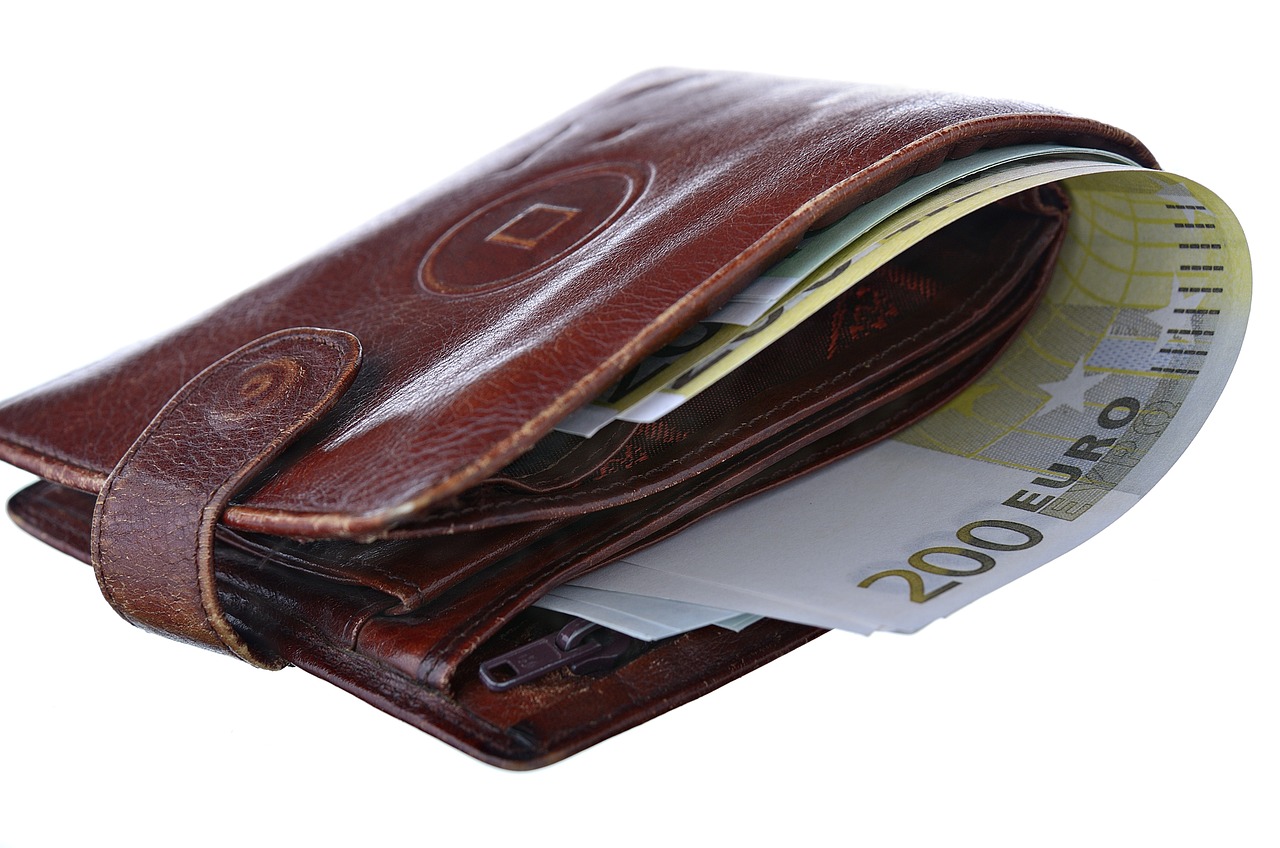
Software Wallets
Software wallets are among the most popular options for managing cryptocurrencies due to their convenience and ease of use. These wallets come in various forms, including desktop applications, mobile apps, and web-based platforms, allowing users to access their digital assets from almost anywhere. Imagine having your favorite coffee shop’s loyalty card on your smartphone; that’s how software wallets work, but instead of points, you’re managing your cryptocurrencies!
Despite their user-friendly nature, software wallets come with their own set of security challenges. Since they are connected to the internet, they are more susceptible to hacking attempts, malware, and phishing attacks. Cybercriminals are always on the lookout for vulnerabilities in software wallets, making it crucial for users to stay informed and implement robust security measures.
When choosing a software wallet, it’s essential to consider several factors to ensure the safety of your digital assets:
- Reputation: Opt for well-reviewed wallets with a strong track record in the crypto community. Research user experiences and feedback to gauge reliability.
- Security Features: Look for wallets that offer two-factor authentication, encryption, and regular updates to protect against emerging threats.
- Backup Options: Ensure the wallet provides easy backup solutions, such as seed phrases or recovery keys, to recover your assets in case of device failure.
One of the significant advantages of software wallets is their flexibility. Users can easily send and receive cryptocurrencies with just a few taps on their screens. However, this convenience can also lead to carelessness. Imagine leaving your front door unlocked because you’re in a hurry; that’s similar to how some users treat their software wallets. Always remember to secure your wallet with strong passwords and enable all available security features.
In summary, while software wallets provide a practical solution for managing cryptocurrencies, they require users to be vigilant and proactive about their security. By understanding the risks and implementing necessary precautions, users can enjoy the benefits of software wallets while keeping their digital assets safe.

Security Features to Look For
When diving into the world of cryptocurrency wallets, it's essential to prioritize security. After all, your digital assets deserve the best protection available. So, what should you be on the lookout for? Here are some crucial security features that can make or break your wallet choice.
First and foremost, two-factor authentication (2FA) is a must. This feature acts like a double lock on your front door. Even if someone manages to get hold of your password, they would still need a second form of verification—like a code sent to your phone—to access your wallet. This significantly reduces the risk of unauthorized access. So, when selecting a wallet, ensure it supports 2FA. It's like having a security guard standing watch over your assets.
Next up is encryption. Think of encryption as a secret language that only you and your wallet can understand. It protects sensitive data within the wallet, making it incredibly challenging for cybercriminals to decipher your private keys, even if they manage to breach the wallet's defenses. Look for wallets that use strong encryption techniques, as this adds an extra layer of protection against potential threats.
Another vital feature is backup options. Just like you wouldn't want to lose your house keys without a spare, you don't want to lose access to your cryptocurrency. A good wallet should offer easy-to-use backup features, allowing you to recover your assets in case of device failure or other unforeseen circumstances. Whether it's a recovery phrase or a backup file, having these options ensures peace of mind.
Additionally, consider the wallet's reputation and reviews. In the digital age, information is at our fingertips. Take some time to research and read user reviews. A wallet with a solid reputation and positive feedback from the community is more likely to have robust security measures in place. It’s like asking friends for recommendations before choosing a restaurant—you want to go where the food is good and the service is reliable.
Finally, always check for regular updates. The tech world evolves rapidly, and so do the tactics of cybercriminals. A wallet that frequently updates its software is more likely to stay ahead of potential threats. This is akin to keeping your antivirus software updated on your computer; it helps protect you from the latest vulnerabilities.
In summary, when selecting a cryptocurrency wallet, make sure to look for these essential security features: two-factor authentication, strong encryption, backup options, a good reputation, and regular updates. By keeping these factors in mind, you can significantly enhance the safety of your digital assets and enjoy peace of mind in the ever-evolving landscape of cryptocurrency.
- What is two-factor authentication (2FA)?
Two-factor authentication is a security measure that requires two forms of identification before granting access to your wallet, enhancing its security.
- How does encryption protect my cryptocurrency?
Encryption secures your sensitive data by converting it into a code that can only be deciphered by authorized users, making it difficult for hackers to access your private keys.
- Why are backup options important?
Backup options ensure that you can recover your wallet and access your cryptocurrency in case of device loss or failure.
- How can I check a wallet's reputation?
Researching user reviews, forums, and expert opinions can help you gauge a wallet's reputation and reliability.
- What should I do if I suspect my wallet has been compromised?
If you suspect any unauthorized access, immediately change your passwords and enable 2FA, and consider moving your assets to a more secure wallet.

Two-Factor Authentication
Two-factor authentication, often abbreviated as 2FA, is a critical security feature that adds an additional layer of protection to your cryptocurrency wallet. Imagine having a lock on your front door, but instead of just a key, you also need a special code sent to your phone to get in. This is essentially what 2FA does for your digital assets. By requiring a second form of verification, it significantly reduces the risk of unauthorized access to your wallet, even if someone were to obtain your password.
When you enable 2FA, you'll typically link your wallet to a mobile app, like Google Authenticator or Authy, which generates a unique code every 30 seconds. This means that even if a hacker manages to steal your password, they would still need access to your mobile device to gain entry. It's like having a double lock on your safe—one that only you possess. The importance of this feature cannot be overstated, especially in a world where cyber threats are becoming increasingly sophisticated.
Here are some key benefits of using two-factor authentication for your cryptocurrency wallet:
- Enhanced Security: By requiring both your password and a time-sensitive code, 2FA makes it much harder for unauthorized users to access your wallet.
- Peace of Mind: Knowing that your wallet has an extra layer of protection can give you confidence in the safety of your digital assets.
- Easy to Use: Most 2FA methods are user-friendly and can be set up in just a few minutes, making it accessible for everyone.
However, it's important to remember that while 2FA significantly boosts your security, it is not foolproof. Users must still exercise caution. For instance, if you lose access to your mobile device or the authentication app, you could find yourself locked out of your wallet. Therefore, always ensure you have backup recovery options in place. It's like having a spare key hidden somewhere safe—just in case you misplace the original.
In conclusion, enabling two-factor authentication is a simple yet effective way to enhance the security of your cryptocurrency wallet. By adding this extra layer of protection, you can significantly reduce the risk of theft and unauthorized access to your digital assets. Remember, in the world of cryptocurrency, staying one step ahead of potential threats is crucial, and 2FA is a vital tool in your security arsenal.
- What happens if I lose my phone with 2FA enabled? - If you lose your phone, ensure you have backup recovery codes provided during the 2FA setup. These codes can be used to regain access to your wallet.
- Is 2FA mandatory for all wallets? - While not mandatory, it is highly recommended to enable 2FA on any wallet that supports it to enhance your security.
- Can I use 2FA with multiple wallets? - Yes, you can use 2FA with multiple wallets. Just ensure each wallet is set up with its own unique authentication method.

Encryption Techniques
This article explores the various security protocols employed by popular cryptocurrency wallets, highlighting their importance in safeguarding digital assets against theft and fraud.
Cryptocurrency wallets are digital tools that allow users to store, manage, and transact cryptocurrencies. Understanding their function is crucial for grasping their security protocols and the importance of protecting digital assets.
There are several types of cryptocurrency wallets, including hardware, software, and paper wallets. Each type has distinct security features and vulnerabilities that users should consider when choosing a wallet.
Hardware wallets are physical devices designed to securely store private keys offline. Their robust security measures make them a popular choice for long-term cryptocurrency storage.
Hardware wallets offer enhanced security against online threats, making them ideal for users holding significant amounts of cryptocurrency. They often come with backup options for recovery.
Despite their security, hardware wallets can be costly and may require technical knowledge to set up and use effectively, which could deter some users.
Software wallets are applications that store private keys on devices or in the cloud. They provide convenience but also present various security risks that users must navigate.
When selecting a cryptocurrency wallet, it's essential to consider security features such as two-factor authentication, encryption, and backup options to ensure the safety of your assets.
Two-factor authentication (2FA) adds an extra layer of security by requiring a second form of verification, significantly reducing the risk of unauthorized access to wallets.
Encryption techniques are the backbone of security in cryptocurrency wallets. They serve as a digital lock, ensuring that even if someone gains access to your wallet, they cannot decipher your private keys or transaction data without the appropriate decryption key. In simple terms, think of encryption as a secret code that only you and the wallet can understand. This layer of security is vital because it protects sensitive information from cybercriminals who are constantly on the lookout for vulnerabilities.
There are various encryption methods employed by wallets, including:
- Symmetric Encryption: This method uses a single key for both encryption and decryption. It’s fast and efficient, making it suitable for encrypting large amounts of data.
- Asymmetric Encryption: Also known as public-key cryptography, this technique uses a pair of keys – a public key to encrypt data and a private key to decrypt it. This method enhances security, as only the owner of the private key can access the encrypted information.
- Hashing: While not encryption in the traditional sense, hashing transforms data into a fixed-length string of characters, making it nearly impossible to revert to the original data. This technique is often used for storing passwords securely.
By implementing these encryption techniques, cryptocurrency wallets can significantly reduce the risk of unauthorized access. However, it’s crucial for users to also adopt best practices, such as using strong, unique passwords and enabling two-factor authentication, to further bolster their security.
Q1: What is the most secure type of wallet?
A hardware wallet is generally considered the most secure option for storing cryptocurrencies, as it keeps private keys offline and away from potential online threats.
Q2: Can my wallet be hacked?
While no system is entirely immune to hacking, using wallets with robust security features, such as encryption and two-factor authentication, can significantly reduce the risk.
Q3: How do I recover my wallet if I lose access?
Most wallets provide a recovery phrase or seed phrase during setup. Keeping this phrase secure allows you to restore access to your wallet if needed.
Frequently Asked Questions
- What is a cryptocurrency wallet?
A cryptocurrency wallet is a digital tool that allows you to store, manage, and transact your cryptocurrencies. Think of it as your online bank account, but instead of dollars, you hold digital currencies like Bitcoin or Ethereum.
- What are the different types of cryptocurrency wallets?
There are several types of cryptocurrency wallets, including hardware wallets, software wallets, and paper wallets. Each type has its own unique features and security measures, so it's important to choose one that fits your needs and level of expertise.
- How do hardware wallets enhance security?
Hardware wallets store your private keys offline, making them less vulnerable to online threats. They are designed specifically for secure storage, which is why they're a favorite among users who hold significant amounts of cryptocurrency.
- Are there any downsides to using hardware wallets?
While hardware wallets offer excellent security, they can be pricey and might require some technical know-how to set up. This can be a bit daunting for newcomers, but the peace of mind they provide is often worth the investment.
- What are software wallets, and how do they work?
Software wallets are applications that can be installed on your computer or mobile device. They store your private keys either locally or in the cloud, providing convenience for daily transactions but also exposing you to various security risks.
- What security features should I look for in a wallet?
When choosing a wallet, look for features like two-factor authentication, strong encryption methods, and reliable backup options. These elements are crucial for safeguarding your assets against theft and unauthorized access.
- What is two-factor authentication (2FA)?
Two-factor authentication (2FA) is an additional security layer that requires you to provide two forms of verification before accessing your wallet. This significantly reduces the chances of someone gaining unauthorized access, making it a must-have feature.
- How does encryption protect my cryptocurrency?
Encryption techniques safeguard your sensitive data by converting it into a secure format that is difficult for cybercriminals to access. Even if they manage to breach your wallet, they would struggle to decode your private keys without the necessary encryption keys.


